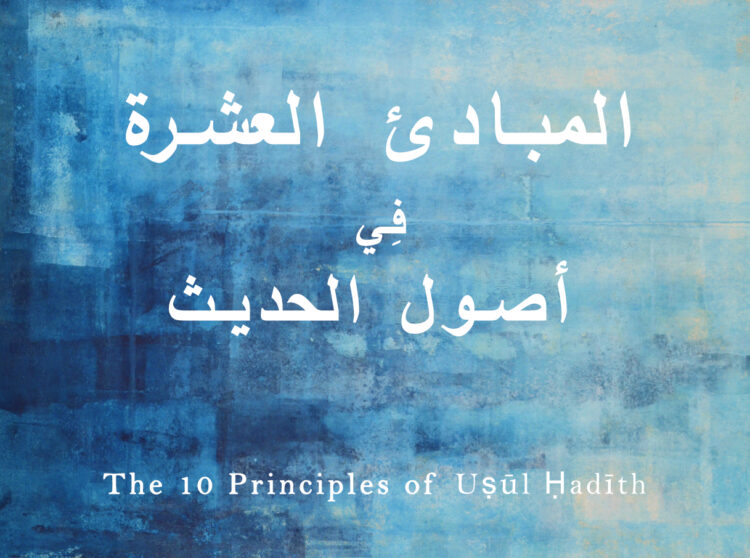Al-Mabādīy’at al-ʽAšharah are the ten fundamentals which every student should know before delving into a particular subject. This helps in knowing what it is about and what can be achieved from the subject.
Indeed the fundamentals of every science are ten:
The definition, the subject, and the fruits,
Its merit, relationship and founder,
The name, basis, and ruling of the lawgiver,
And the legal cases. Though some is sufficient
The one who obtains it all gains nobility.
- Definition
The principles that relate to the study of ḥadith. - Subject
Considering whether the chains and texts of narration are authentic or not. - Fruit
The ability to classify ḥadith in their strength as well as various classifications. - Merit
One prevents either incorrectly applying the legal theory of the Sunnah or interpreting fazāil of action. - Relation to other disciplines
It is the base of the Šharī’ah; without it, one cannot determine whether ḥadith can be used as legal rulings and advice. It also sets a standard and elimantes fabricated ḥadith. - Founder
There are many early works based on Bukhari/Muslim, principles laid out by Imam Tirmidhi and Imam Ibn Hajar Asqalani. - Name
It is called the Principles of ḥadith - Sources
Principles come from principles within the Qurʼān, ḥadith as well as schoalrly consensus on what kind of narrations acceptable or not. - Ruling
It is wajib for Scholars to study this science and for the public to adhere to ruling upon the ḥadith based on these principles. - Purpose
To understand the issues one faces when receiving a narration leading back to the Prophet ﷺ. On how to carefully and competently distinguish between authentic ḥadith , and classify them correctly based on a number of classifications like strength, number and type. After this one can use the ḥadith to apply to Šharī’ah and society.
Foundational works in Uṣūl Ḥadīth:
- Usool Al-Hadeeth by Abu Ameena Dr Bilal Philips
- Taysir Mustalah al-ḥadith by Mahmud al-Tahan
- Nukhbat al-Fikr with Sharh Nuzhat al-Nazr by Ibn Hajar (edited by Nur al-Din ‘Itr)
- Al-Muwqizah by al-Dhahabi (edited by Abd al-Fattah Abu Ghuddah)
- Muqaddimah Ibn al-Salah (with Nukat Ibn Hajar)
- Tadrib al-Rawi by al-Suyuti
- Ahmad Shakir – Al-Ba’ith al-Hathith
- Al-Sakhawi – Fath al-Mughith Sharh Alfiyat al-Iraqi
